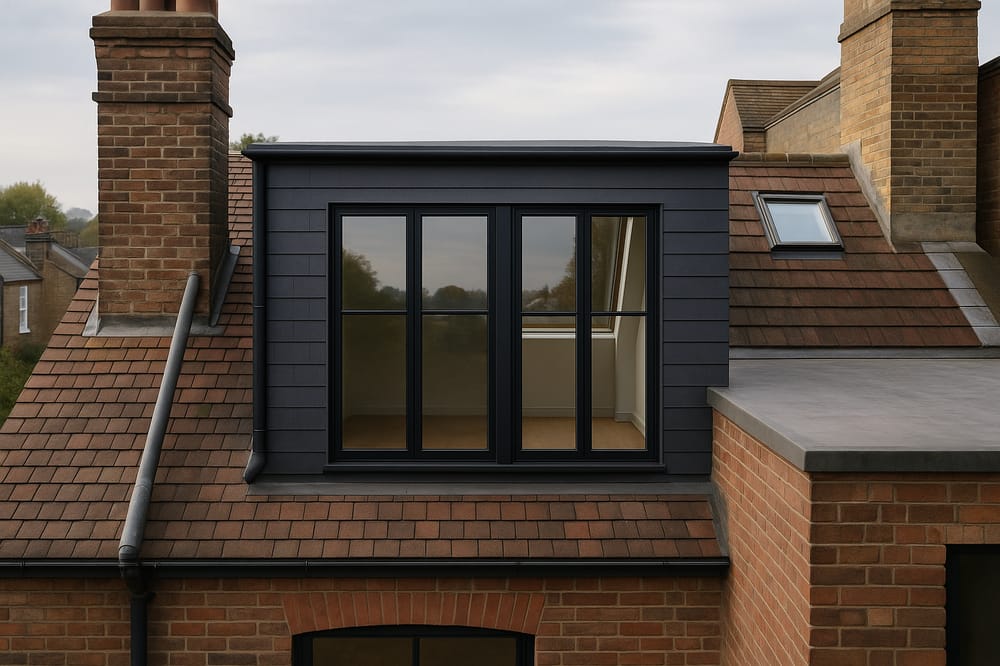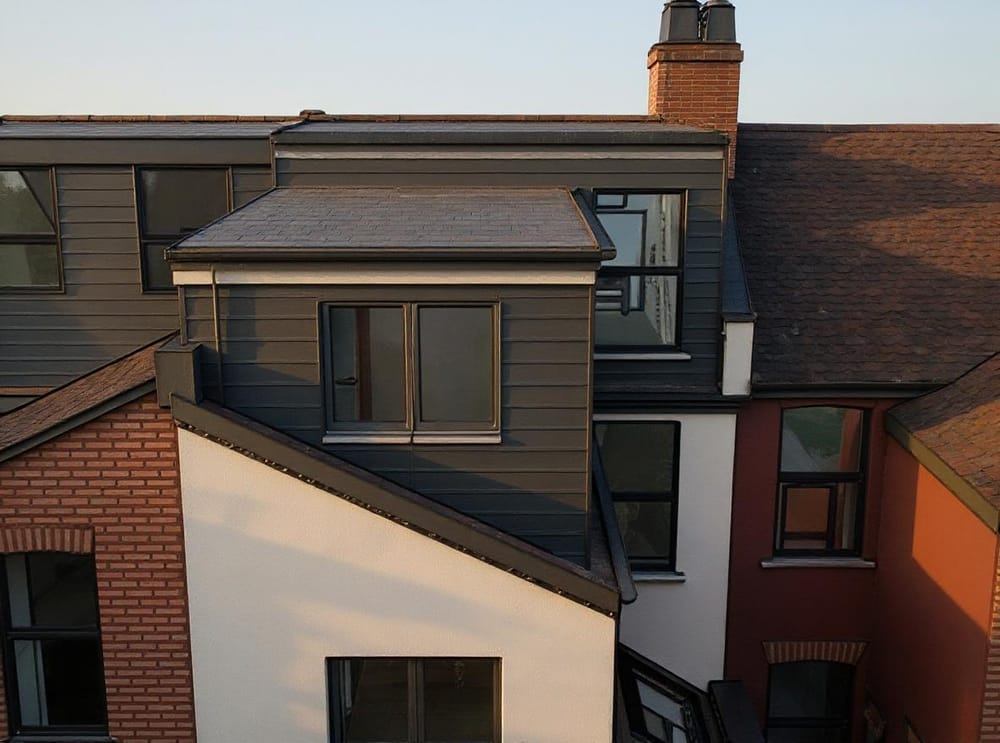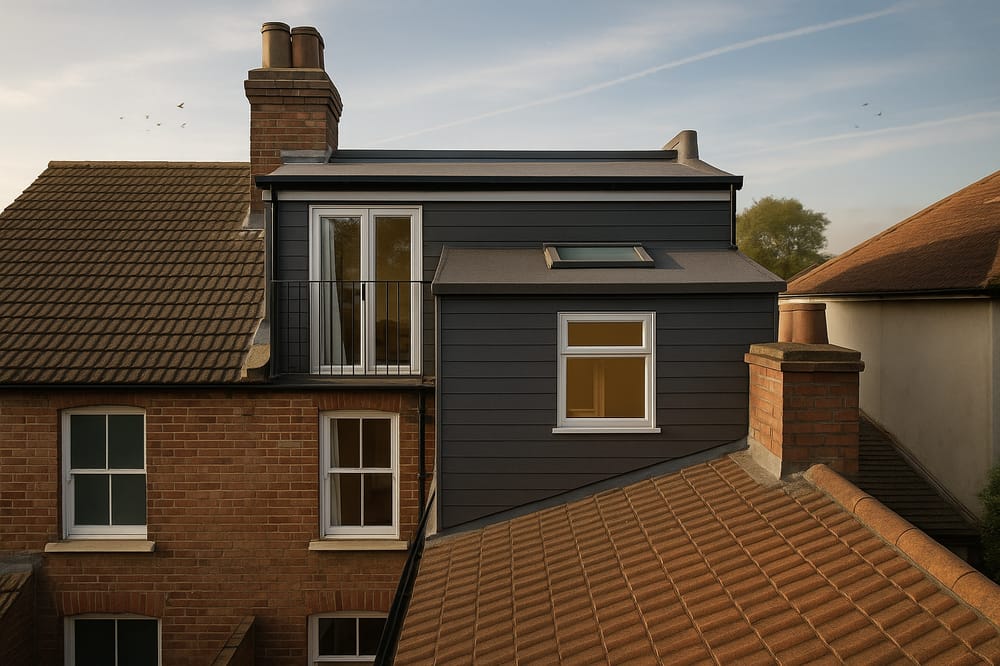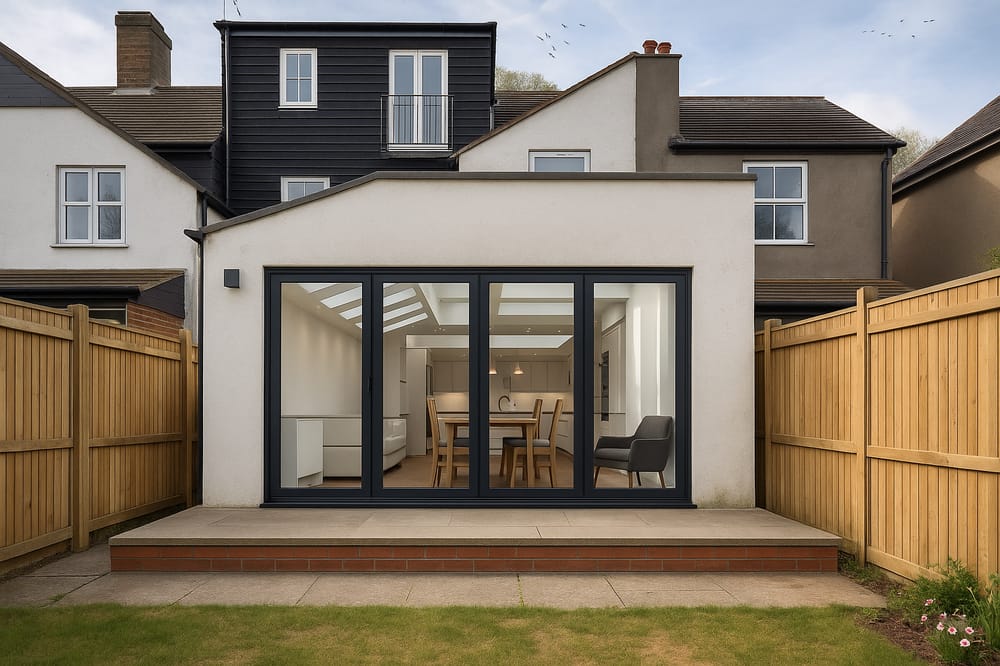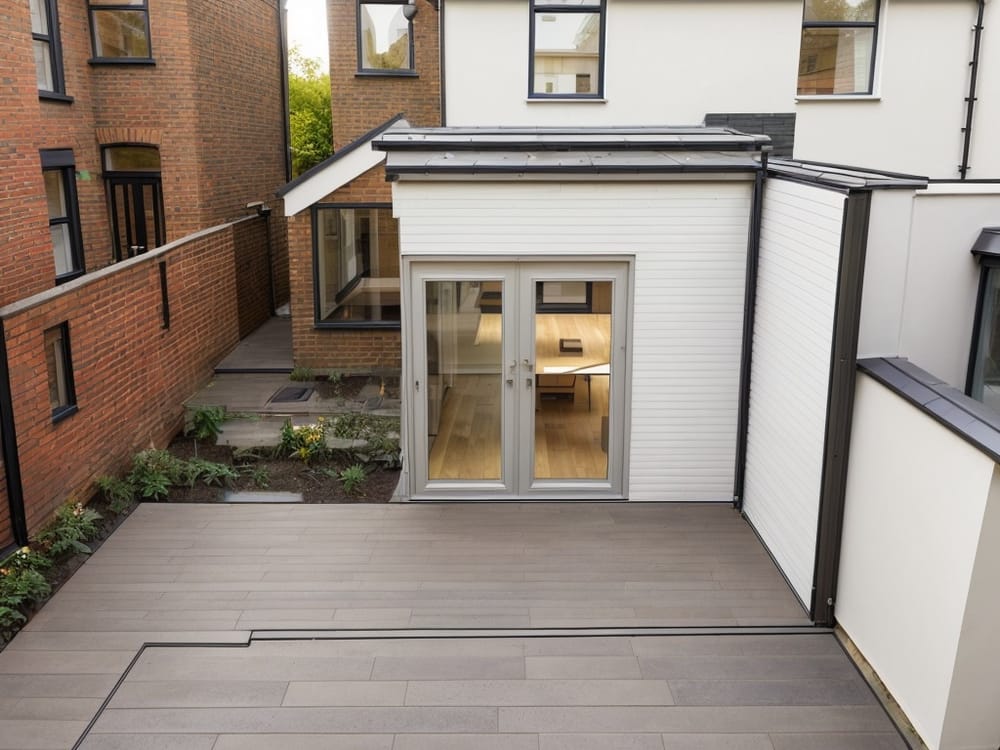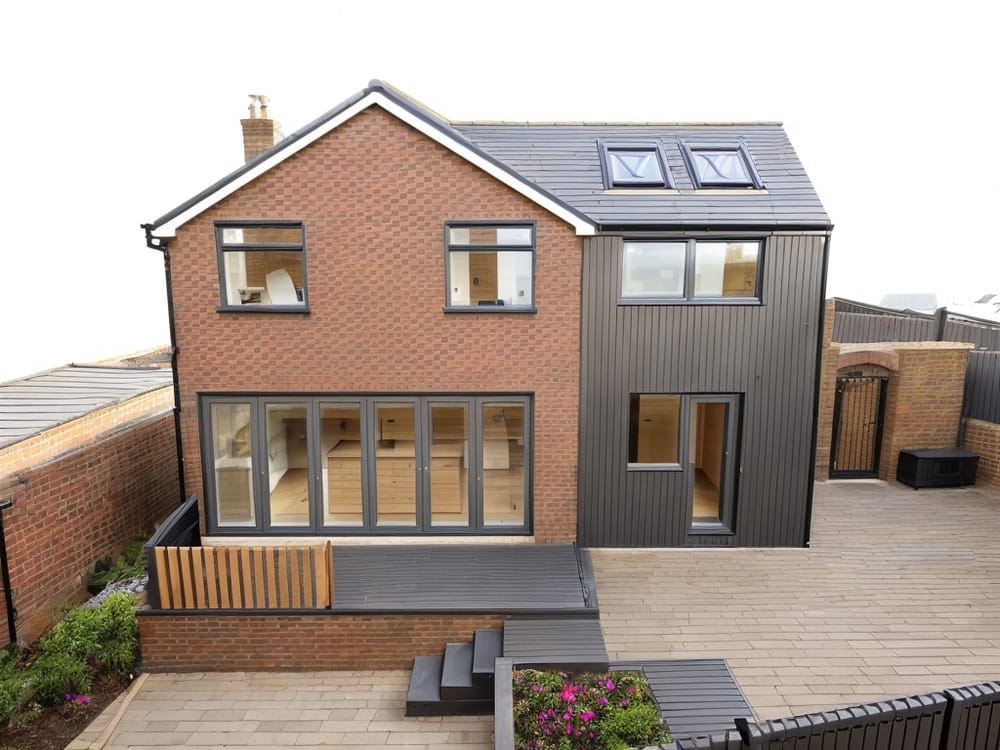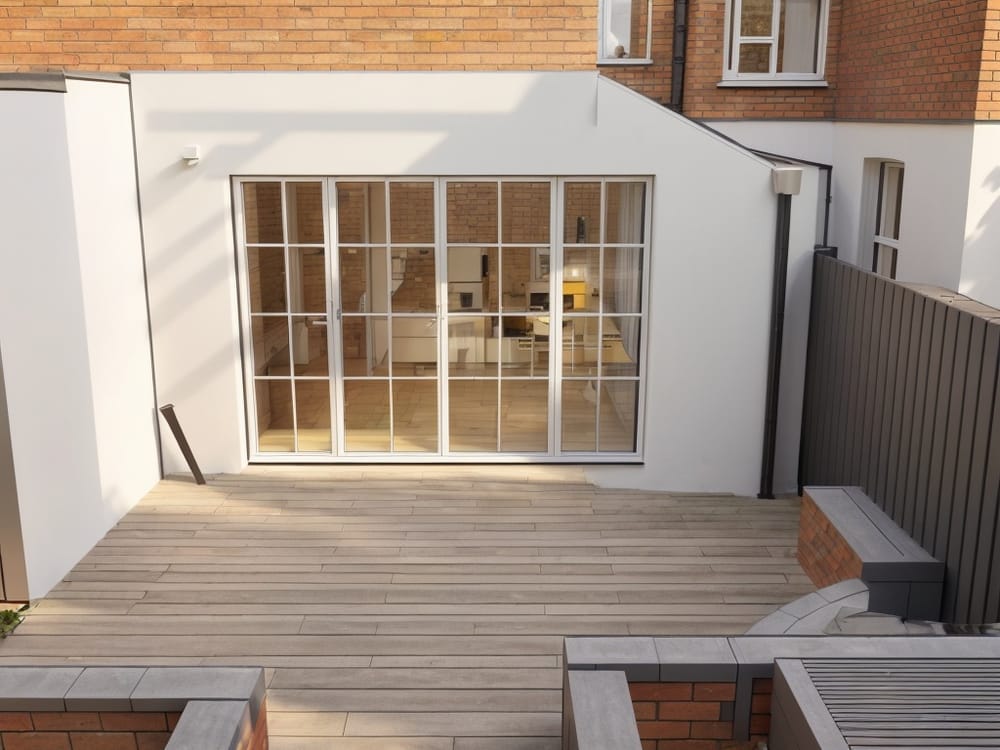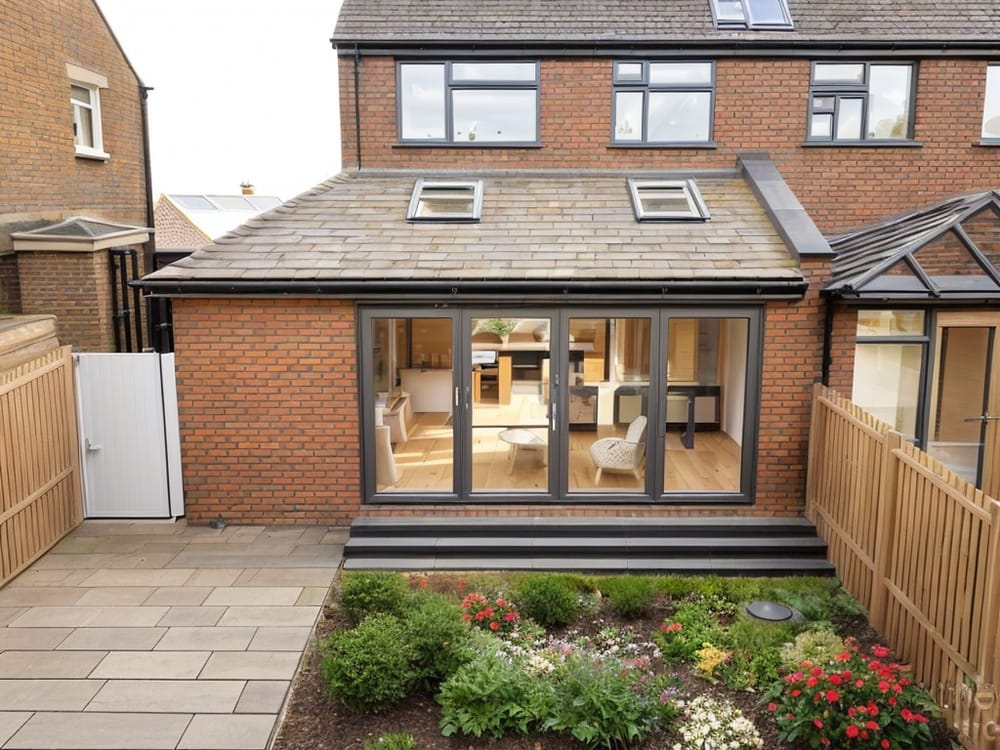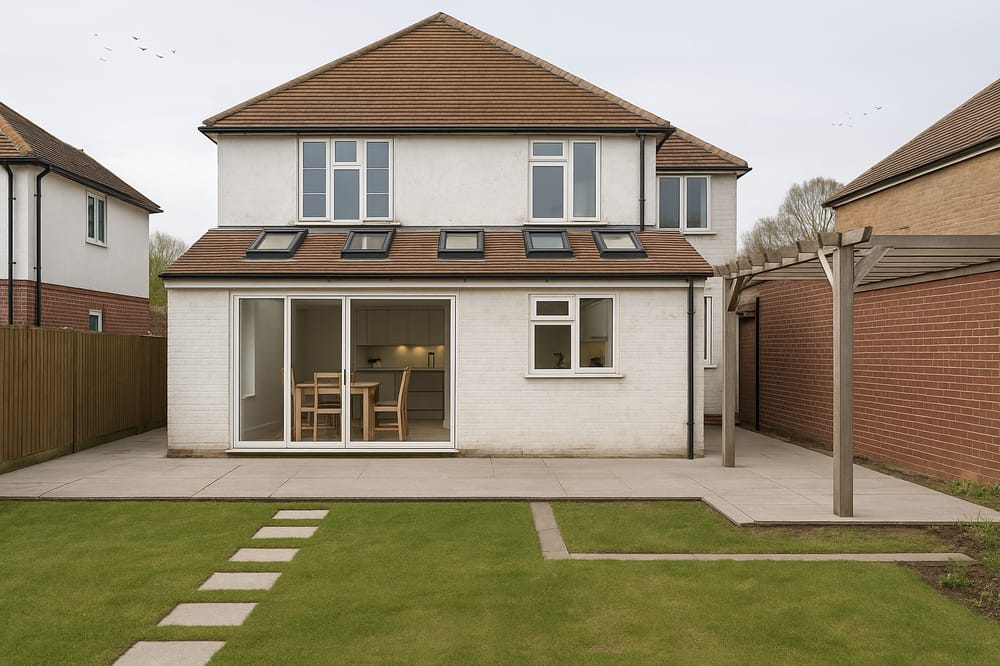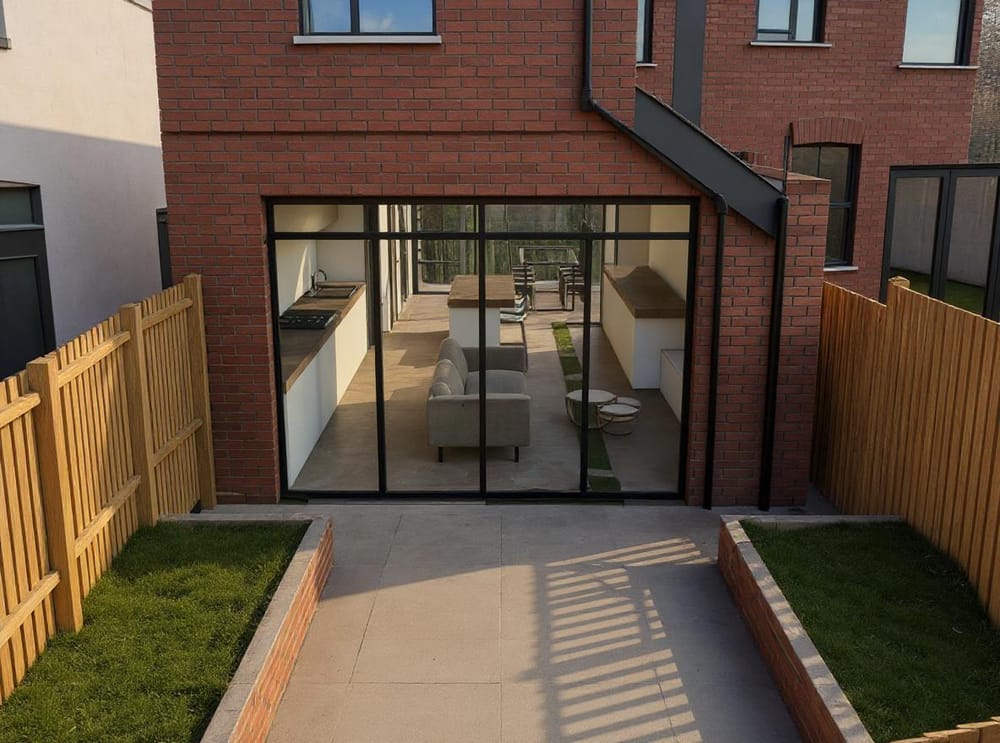Those looking to improve where they live have many options, but none have proven to be as popular as extending. With the increased desire for spacious, adaptable and functional homes, more are turning to extensions for the new lease of life they crave. But how much does a house extension cost?
As with every home project, the overall cost of an extension will depend largely on what you are trying to achieve. Size, location and extension type are just a few of the many factors that will significantly affect the final cost. The price of a one-storey extension in Scunthorpe is going to be very different to the cost of a two-storey extension in London.
In this article, we'll be exploring everything you need to know about home extension costs, including:
- The costs of different types of house extensions
- Factors that affect the cost of an extension
- Where to get reputable contracting
- How to cut down on costs while building your extension
How much does a house extension cost?
Single storey extensions
Single storey extensions, like their name implies, are usually erected on the ground floor alone and could be rear, side, or wraparound.
Ground floor rear house extension cost
Rear extensions are very popular extension types that build out of the back of the property into garden space.
| Contractor |
London Estimate (Ex. VAT) |
Outside London Estimate (Ex. VAT) |
| Low end |
High end |
Low end |
High end |
| Budget |
£45,000 |
£75,000 |
£37,125 |
£61,875 |
| Average |
£54,600 |
£90,000 |
£44,550 |
£74,250 |
| Premium |
£58,500 |
£97,500 |
£48,262 |
£80,437 |
(for a 30 sqm extension)
Ground floor side return house extension cost
A side return extension (sometimes called a ‘side infill’) fills in dead alleyway space at the side of a property. These alleyways are commonly found attached to Victorian or period terraces and are a good alternative to a rear extension as they do not sacrifice any garden space.
See an example of a Resi side return extension here.
| Contractor |
London Estimate (Ex. VAT) |
Outside London Estimate (Ex. VAT) |
| Low end |
High end |
Low end |
High end |
| Budget |
£52,000 |
£75,000 |
£43,313 |
£61,875 |
| Average |
£63,600 |
£90,000 |
£51,975 |
£74,250 |
| Premium |
£68,250 |
£97,500 |
£56,306 |
£80,437 |
(for a 30 sqm extension)
Ground floor wraparound house extension cost
If you’re really craving space you might decide to go for a wraparound extension. This combines a side return and rear extension in one big L shaped build that provides loads of space, but does take up some of the garden.
See an example of a Resi wraparound extension here.
| Contractor |
London Estimate (Ex. VAT) |
Outside London Estimate (Ex. VAT) |
| Low end |
High end |
Low end |
High end |
| Budget |
£78,750 |
£112,500 |
£64,968 |
£92,812 |
| Average |
£94,500 |
£135,000 |
£77,962 |
£111,375 |
| Premium |
£102,375 |
£146,250 |
£84,460 |
£120,657 |
(for a 45 sqm extension)
Two-storey
Another way you can get more space if you’re not satisfied with a single extension is to extend on two storeys. These will cost just a little more than a single extension per square meter, but will obviously be much bigger in size, increasing the overall cost significantly.
See an example of a two-storey extension here.
| Contractor |
London Estimate (Ex. VAT) |
Outside London Estimate (Ex. VAT) |
| Low end |
High end |
Low end |
High end |
| Budget |
£78,750 |
£112,500 |
£64,968 |
£92,812 |
| Average |
£94,500 |
£135,000 |
£77,962 |
£111,375 |
| Premium |
£102,375 |
£146,250 |
£84,460 |
£120,657 |
(for a 45 sqm extension)
Whole-house basement
Basement extensions are a smart extension choice for properties in areas with high land values, such as London and other areas of the south. They are, however, more expensive due to the complexities of digging and building down.
| Contractor |
London Estimate (Ex. VAT) |
Outside London Estimate (Ex. VAT) |
| Low end |
High end |
Low end |
High end |
| Budget |
£240,000 |
£320,000 |
£198,000 |
£264,000 |
| Average |
£288,000 |
£384,000 |
£237,600 |
£316,800 |
| Premium |
£312,000 |
£416,000 |
£257,400 |
£343,200 |
(For a 80 sqm extension)
Glass extension cost
Glass extensions typically cost about £1,350 to £1,959 per square meter for a budget finish, while a luxury finish could set you back as far as £3,000 per square meter.
Conservatories and orangeries cost
An average conservatory garden room extension would cost between £10,250 - £16,750, while an orangery of the same standard would cost between £30,000 to £35,000.
Flat pack extension costs
A flat pack extension would cost about £750 to £1,140 per square meter for a budget option, midrange would cost £1,275 to £1,800, and luxury would cost about £1,650 to £3,600.
Semi-detached house extension costs
Semi-detached house extensions cost almost the same as other house extensions. The major difference might be that you'll need to secure a party wall agreement if the project involves a shared wall. It would cost an average of £1,250 - £2,500 per meter square.

Additional house extension costs
It is important to note that the above estimates do not include VAT at 20%. They also do not include key fit-out items, such as kitchens, glazing, landscaping and bathrooms. The cost of these fit-out items will depend on the quality of finish you look to achieve. Typically they will take up around 5% of your overall budget.
The above estimates assume the existing property, soil, drainage and foundations are in a good/adequate condition. Encountering any issues in these areas will further affect your costs.
It is also assumed that existing rooms affected by the extension require decoration only. Refurbishing any existing rooms alongside your extension has not been accounted for in the estimated costs, and therefore the total SQM may not include everything that will need to be completed. The easiest way to calculate the additional cost of refurbishing existing rooms is to get a tailored estimate, as the prices will be very specific to your project.
Talk through your project in our free one-to-one consultations here.
What affects the overall house extension cost?
As mentioned, a house extension cost is affected by a number of factors. Here’s what you’ll need to consider with your extension project.
- Size
- Location
- Function
- Contractor
- Materials
- Design complexity
- Soil, drainage and foundation condition
Design and planning
You'll need to consider the cost of hiring a surveyor, architect and structural engineer when calculating how much your new extension will cost. Asides from these professionals, you'll also have to pay for the required permissions, building regulations approvals and party wall agreements.
Extension size, shape and height
The size, shape and height of your extension will play a vital role in the cost of your extension. The larger the extension, the more the cost. In the same vein, the better quality of the materials, the more expensive it will cost.
Groundworks
Groundworks, such as improving drainage and digging the foundation will affect the overall cost of your extension. For example, if you're building in an area of uneven terrain, you can expect to pay more than you would on flat terrain.
Tricky trees
It's essential you check with the appropriate authority before taking out any tree. This is because Tree Preservation Orders affect a wide range of trees, and removing or altering such a tree could land you in trouble.
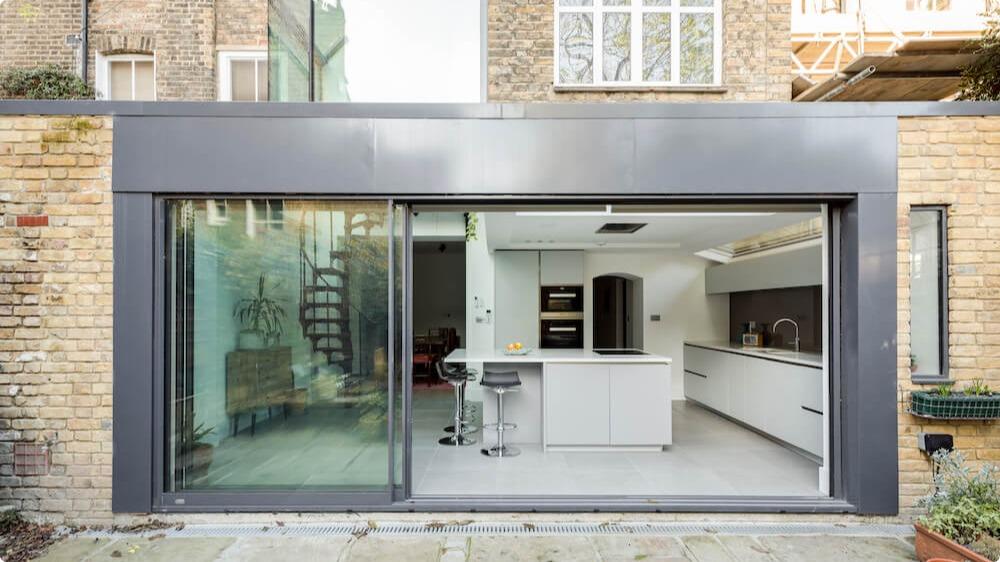
Building site constraints
There are several building site constraints that could rack up your house extension costs. These special cases include:
- Changes to the existing structure like steelwork and walls will incur extra cost
- Moving drainage, pipework or gas meter will also incur additional cost
- Ease of access to your site could also increase your cost if it's challenging to manoeuvre tools and materials
- Soil types that require specific materials or building techniques
Windows and doors
Windows and doors are pretty pricey and could significantly increase the cost of your extension.
You should consider speaking to your builder about less expensive options like going for a skylight instead of a glass ceiling or opting for imitations of famous brands such as Crittall.
Combining these options with standard-sized windows and doors, allows you to enjoy the wonders of natural light while saving a bit on house extension costs.
Fitting and fixtures
Luxurious touches such as bespoke flooring, fitted joinery or toking would make your extension stand out but they would also cause a hike in the cost of your extension.
If your budget is small, you should opt for more basic designs like simply painted walls, standard lighting, and engineered wood floors.
Also, the extra fitting and features required could ramp up the cost when installing an additional bathroom or extending a kitchen.
Location
The location of your home plays a significant role in the price of your extension. Extending a house outside of London will cost considerably less than extending one in London.
You should also factor in paying for a parking limit if you don’t have off-road parking available at your home or site.
Insurance
Your insurer will most likely need to adjust your cover to include the addition to your building.
Construction
When delving into the costing of a project, most of your attention should be on construction. Construction and material costs will make up a great deal of your overall budget, and themselves are influenced by a number of variables. That’s why we suggest getting a construction estimate tailored to your specific project.
Try our construction cost calculator tool and get a tailored construction estimate in minutes.
But if you are only in the early stages of looking at your extension options, you might benefit from looking at some more general cost estimates.
Below are construction estimates for the nation’s favourite extension projects. We’ve given these prices variant on three contractor types:
Individual - a sole trader working with subcontractors. Individual contractors are generally cheaper as they have lower overheads (no office, vans, admin team) but this can result in poorer communication and lack of proper paperwork.
Small company - typically 5 to 10 full time employees. These teams are established locally and may utilise contracts with admin support. This will typically result in the project running smoothly with a clearer level of communication and a conclusive paper trail. The costs for this type of contractor will reflect the support that they offer through utilising their admin support, vans and employees on payroll.
Large company - typically 10 to 20+ full time employees. Larger companies will have a strong online presence, several projects on site at any one time and loads of reviews you can look at. They are fully up to speed with contracts and will document all of the relevant paperwork effectively.
They often provide a dedicated project manager, as well as having all trades on payroll from plumbers to roofers. All in all this added experience, manpower and professionalism will come at a premium.
House extension cost breakdown
Architectural Fees
Architect fees are typically between 3 to 7% of construction costs. You can expect to pay about £2,700 each for planning and required drawings.
Other professional fees
Other professional fees include:
- Structural engineers fees - £500 to £1,000
- Surveyor's fees- £500 to £1,500
- Your building contractor or architect could charge about 15 to 20 per cent for project management
Where can I find architects, builders and professionals for my extension project?
Finding the right professionals to handle your project is very crucial to the success of your extension.
You could ask friends and acquaintances who have extended their homes in the past to refer you to smiling professionals.
On another note, you could also check out our platform — Resi Connect. There you can be introduced to vetted tradespeople and professionals near you.
How to keep a house extension cost under control?
Here are some tips on keeping your house extension cost under control...
- Set a budget and get several quotations for the work
- Have contingency cash in case of unforeseen circumstances
- Carry out some of the jobs yourself, but only if you have the skillset!
- Hire good tradespeople you trust to get the job done
- Source the materials yourself
How to finance my house extension
There are several ways to finance your house extension. Take a look at the below options, and remember our Resi Finance team is always on hand to help you find the best route for your project.
Leveraging your savings
Using your savings will save you from the extra stress that comes with repayments and interest at the end of your project. However, you should consider the effect of inflation. Every year, the price of labour and materials increases. The longer you wait, the more expensive your extension will be.
Using an unsecured personal loan
Unsecured personal loans are great for small house extensions. Their major advantage is that you get to pay off your debt without covering the cost of set-up fees. However, securing a loan may be difficult if you have bad credit, and the high interest rates mean it’s not very suitable for projects above £30,000.
Remortgaging
Remortgaging is best if you're taking on an extension that costs more than £30,000. Using this means of funding often provides the best interest rates long-term. When done right, you can leverage the value your project creates. However, depending on when you're planning on remortgaging, you might find the deals available less favourable than your existing mortgage.
Ready to kickstart your project? Get a quick quote to discover the cost of starting your project with Resi.




